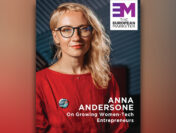 Today, Arab women are high-earners and high-spenders in their societies. Many brands want a slice of the pie. Everyone wants to know the key to marketing to Arab women. How can brands unlock this mysterious consumer? The first step to this is to stop seeing them as a monolith.
Today, Arab women are high-earners and high-spenders in their societies. Many brands want a slice of the pie. Everyone wants to know the key to marketing to Arab women. How can brands unlock this mysterious consumer? The first step to this is to stop seeing them as a monolith.
Arab women are a heterogeneous group who are unlikely to all be interested in your product. A Saudi student studying medicine in the UAE is very different to a middle-aged Syrian woman with a home cooking business. An Egyptian school teacher is different to a Jordanian charity worker. You get the idea.
The way that many brands deal with the diversity of Arab women is that they figure out what persona makes up the biggest chunk of their market and market to that persona. The result is that we see most ads on targeting married Saudi women. I’m looking at you, laundry detergent and female hygiene brands! The upside of this is that most people will likely understand the ad message. The downside is that brands lose out on creating a meaningful connection with consumers.
What’s the alternative? It’s considering the exact personality types of your consumers. What are they interested in? How do they see their own identity? One example is Nike Women’s ad targeting young Arab women interested in sports. Did everyone love it? Perhaps not. But those who did, really loved it.
Moral of the story? Being controversial but connecting with your customer pays off.
We at KOOOT.com like to think of our customers as personas. They belong to different age groups and have different interests. We talk to each persona differently. We talk to them as a sister would, using words and visuals that have cultural and personal relevance.
Before you jump to the conclusion that you’re going to include more Arab-centered messaging in your communication, let us be clear that adding a ‘yallah’ or ‘inshallah’ is not enough. In fact, it comes off as stereotypical and lazy. Like most of us, Arab women are not an ‘untapped resource’; they have ad fatigue and won’t hesitate to scroll away when you’re irrelevant.
Talk to your customers’ everyday experiences instead. What does that entail? Let’s go back to the example of laundry detergent. TV commercials involve a scenario in which a patient mother cleans her son’s clothes smilingly after he soils them playing outside. Why not speak to a more intimate experience? Why not base a commercial around the experience of the first period?
Before you gasp in outrage, think of the digital possibilities. With digital, you can target exactly the age group experiencing this. Millennials are seeking relatable content.
My last advice is more structural. You can’t market to a persona you don’t have on your team. Make sure your organization is diverse enough to give you a wealth of experiences to draw upon. Make sure you are relevant, relatable and trustworthy and that you’re reaching the right audience for you.

